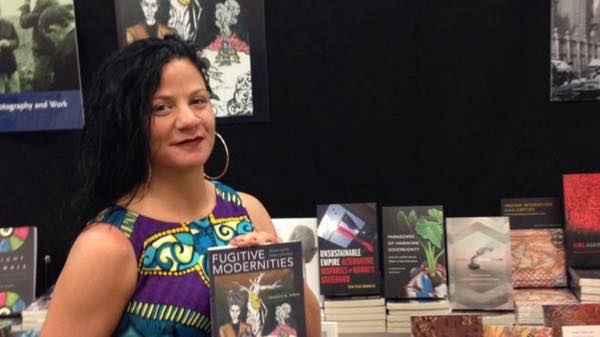
Kurt Vonnegut wrote in his 1969 classic Slaughterhouse Five — “You are who you pretend to be, so we must be careful about what we pretend to be.” His words, however, can become complicated, distorted and somewhat confusing when race — which always freights down any conversation when it rears its head — enters into the realm of pretense.
Take the case of George Washington University associate professor of history Jessica A. Krug, who recently admitted via a blog post that she has “engaged in a years-long deception by assuming various Black identities even though she is white.” In the post she wrote that she had eschewed her “lived experience as a white Jewish child in suburban Kansas City” and had “assumed identities she had no right to claim.”
Some of my Jewish friends, however, would take exception to Ms. Krug stating that she was raised as a “white Jewish child,” since — as I’ve been courteously but firmly informed on more than one occasion — there are some Jews who don’t consider themselves white and tend to bristle when identified as such.
But, with that out of the way, there always is an air of wonderment when someone who was born with the privilege of white skin elects to give said advantage up by claiming to be black. In most cases, when someone is “passing” it’s usually the other way around: a person of color whose complexion is so fair they can claim to be white and they do so in order to take full advantage of everything our pigmentocracy offers.
You do understand that, in spite of how loudly we claim to be a “democracy” (which by definition is “a state of society characterized by formal equality of rights and privileges”), we’re only telling ourselves another lie — just one in a long list of lies. Race matters in America because the dominant — white — culture says it matters, and as long as it matters, we’re stuck with the pigmentocracy label.
About five years ago, Rachel Dolezal, who had just been elected to be the head of the Spokane, WA, chapter of the NAACP, was outed by her parents as being white and from Montana, no less. The press, and then the public, was brutal on her and she lost her teaching position at a local university where, as a much-beloved educator, she taught black history.
In an interview, Dolezal later said, “It’s not a costume. I don’t know spiritually and metaphysically how this goes, but I do know that from my earliest memories I have awareness and connection with the black experience, and that’s never left me. It’s not something that I can put on and take off anymore. Like I said, I’ve had my years of confusion and wondering who I really [was] and why and how do I live my life and make sense of it all, but I’m not confused about that any longer. I think the world might be — but I’m not.”
The question for me is not why these two white women (something tells me there are more than just these two out there in America) elected to live their lives as persons of color, but why does their choice seem so earth-shatteringly noteworthy and disturbing? Why do people — both black and white — get all bent out of shape by their decision to live what is perceived as a lie? It certainly can’t be that as a nation we value probity and truthfulness — we’re a nation chock full of liars of every ilk and stripe. Our nation was built on the lie of “All men are created equal.”
Now I can hypothesize with the best ’em since that’s part of what I do for a living: I try to figure shit out.
Perhaps they both — as many of us do — relate to and like to root for the underdog. There’s something innately satisfying about the story of David kicking Goliath’s ass. And, again perhaps, they both are imbibed with keener senses of justice, fairness and parity than other white folks — which could lead them to the conclusion that the best way to combat the inequality they witness daily is not by standing on the sidelines rooting for the underdog, but by getting right down there on the killing floor with them, by actually becoming a member of the despised class.
Did either of these women take something from me or other black folk by their pretense? No. Did they hurt our movement towards equality? Again, no. In point of fact, they might have helped us in our efforts if left alone.
Indeed, since “race” isn’t a scientific construct but a political/economic one that was brought into existence when American-style slavery required that something be invented to keep black bondsmen and white indentured servants separated and at each other’s throats, these two women who are destined to live out their lives suffering the opprobrium of the majority of society just might be the ones that are right.
If other whites — both male and female — disavowed the notion of race; if they were willing to say they are human rather than say they are white; if they would turn in the white privilege cards they carry around all the time it would be game, set, match as far as racial animosities go.
If this were to happen, the racial divide in this country, and indeed the world, would suddenly start to at last heal. But since most blacks cannot pass for white, for this racial healing to occur all whites of good intentions will have to try to pass for black. Now that would really be something, wouldn’t it?
